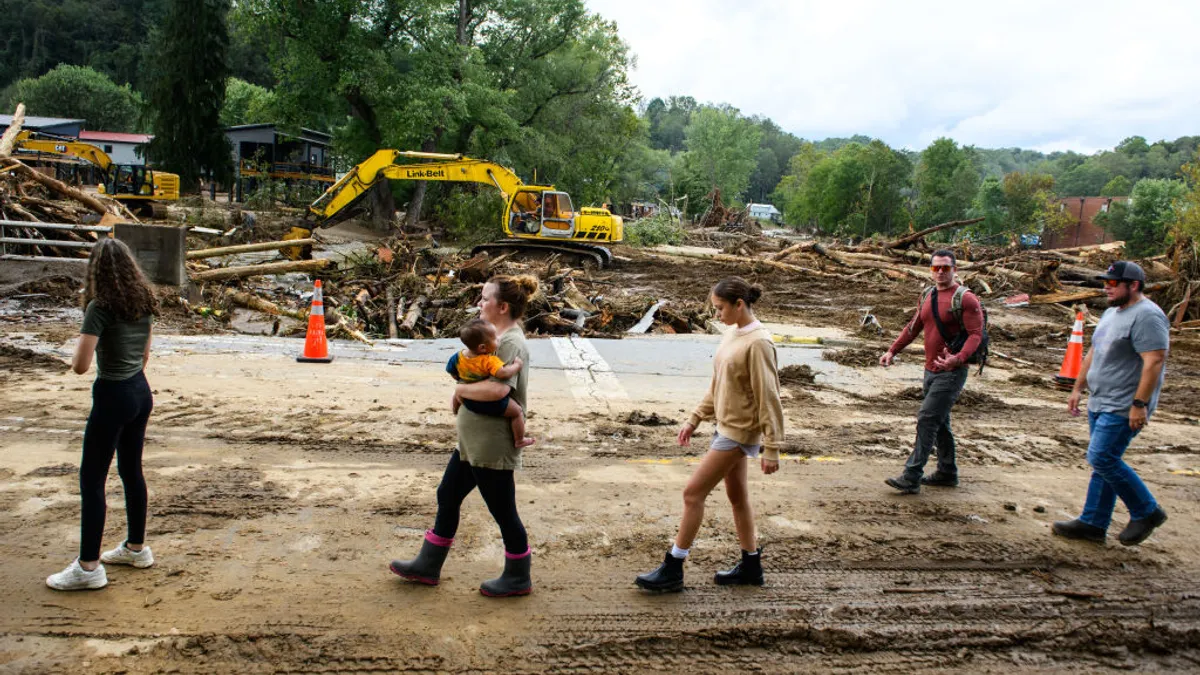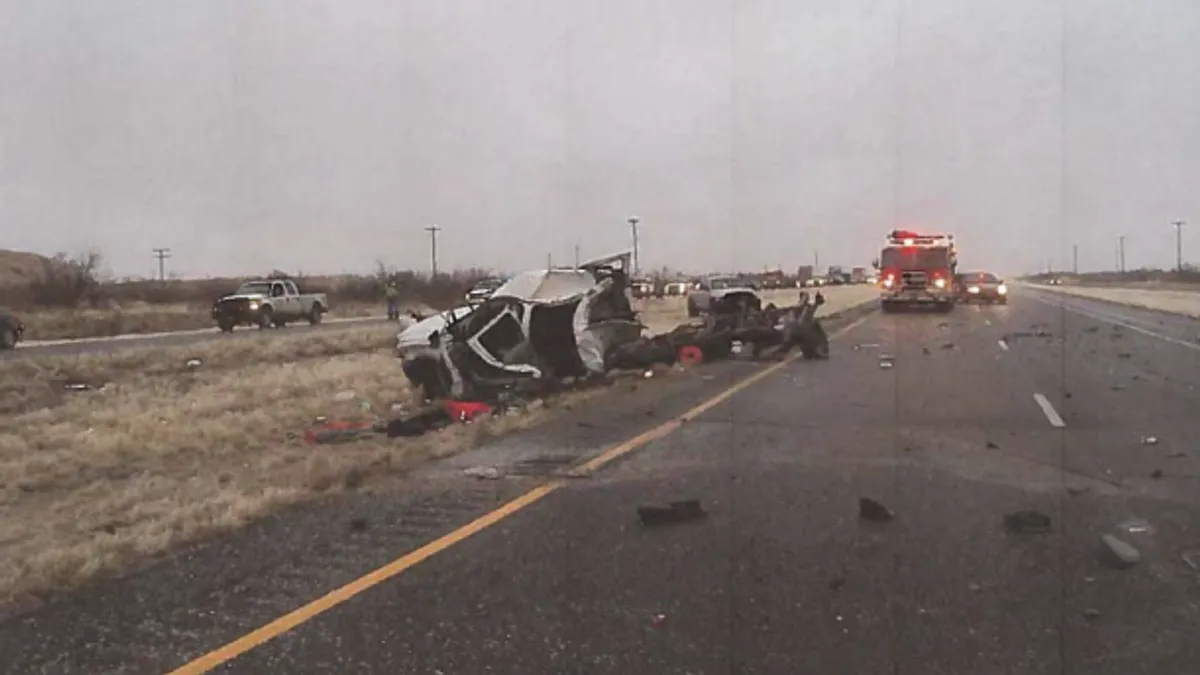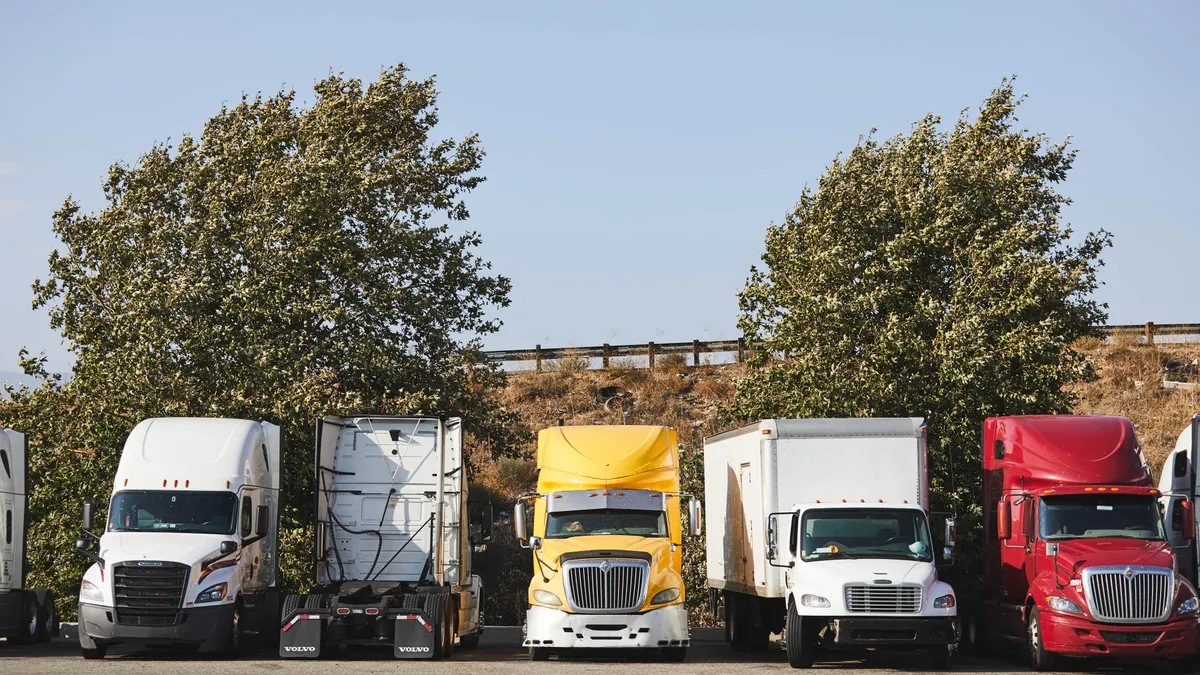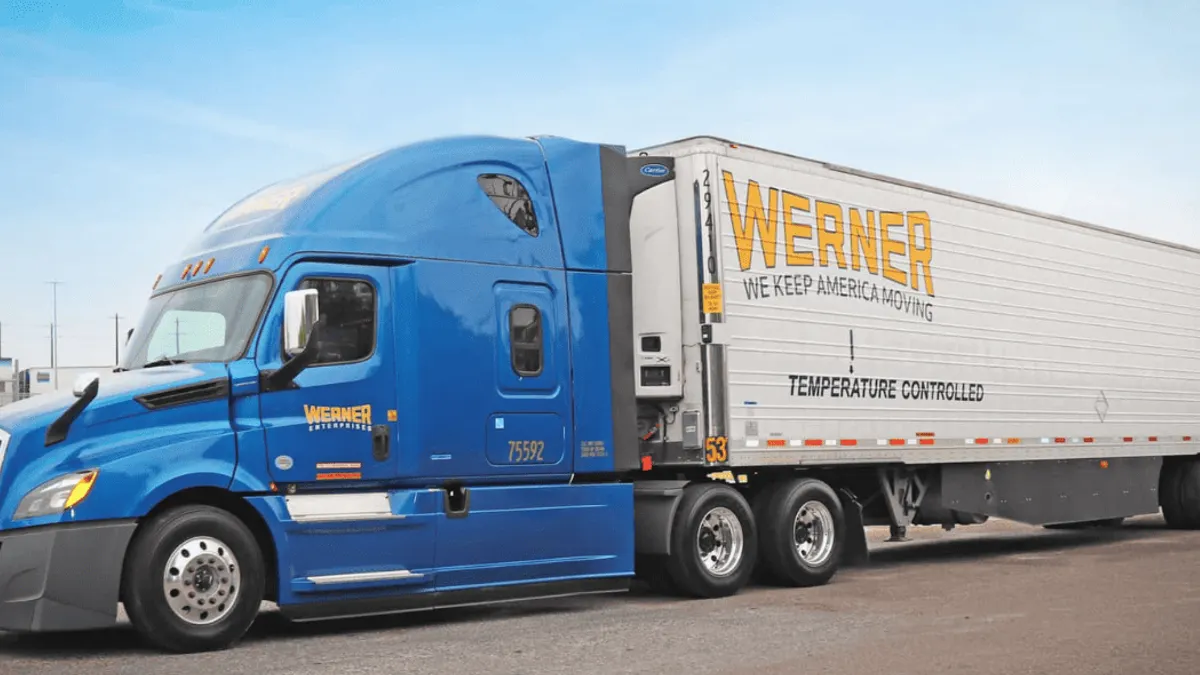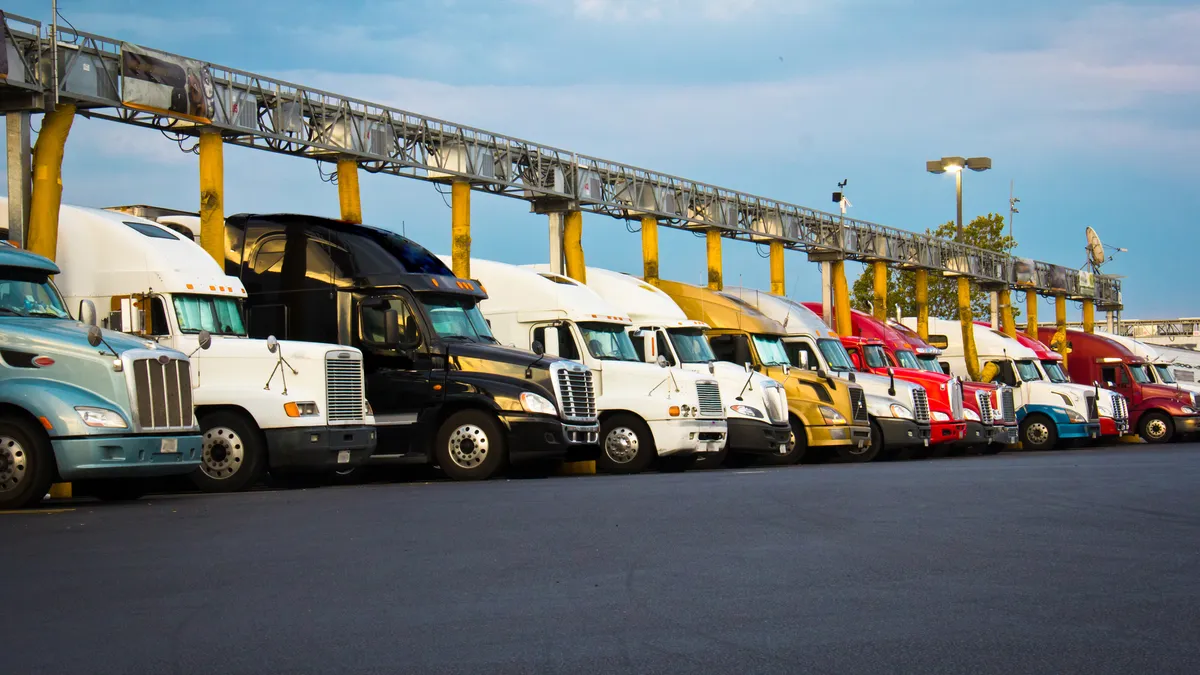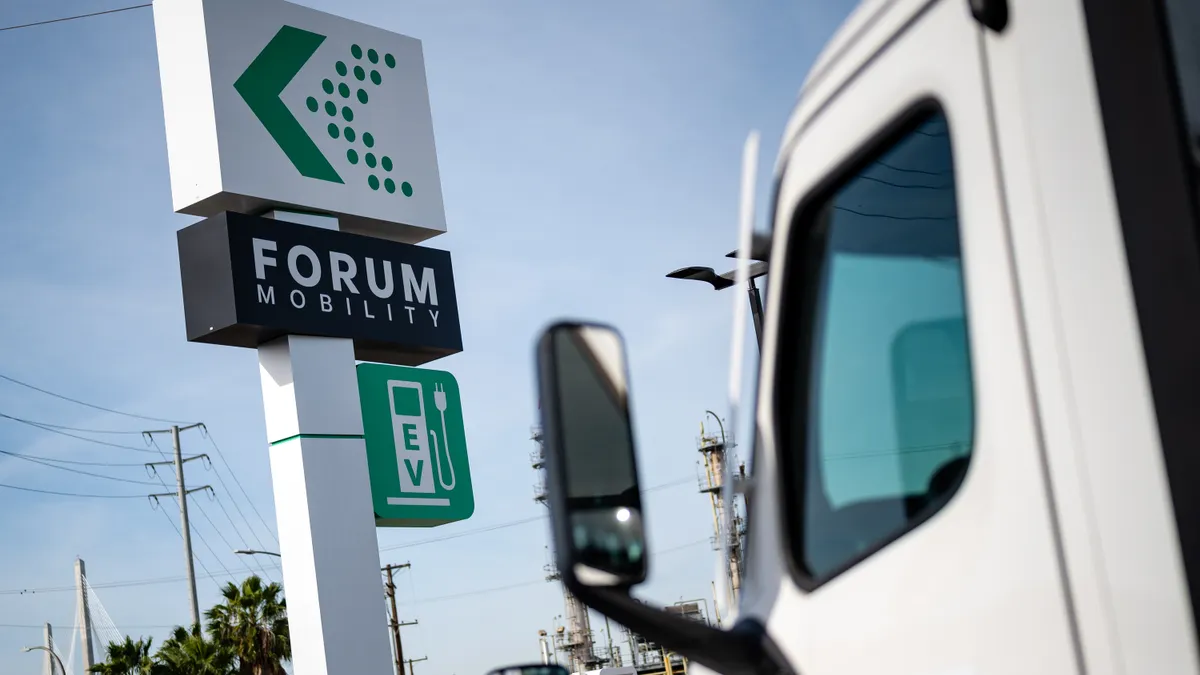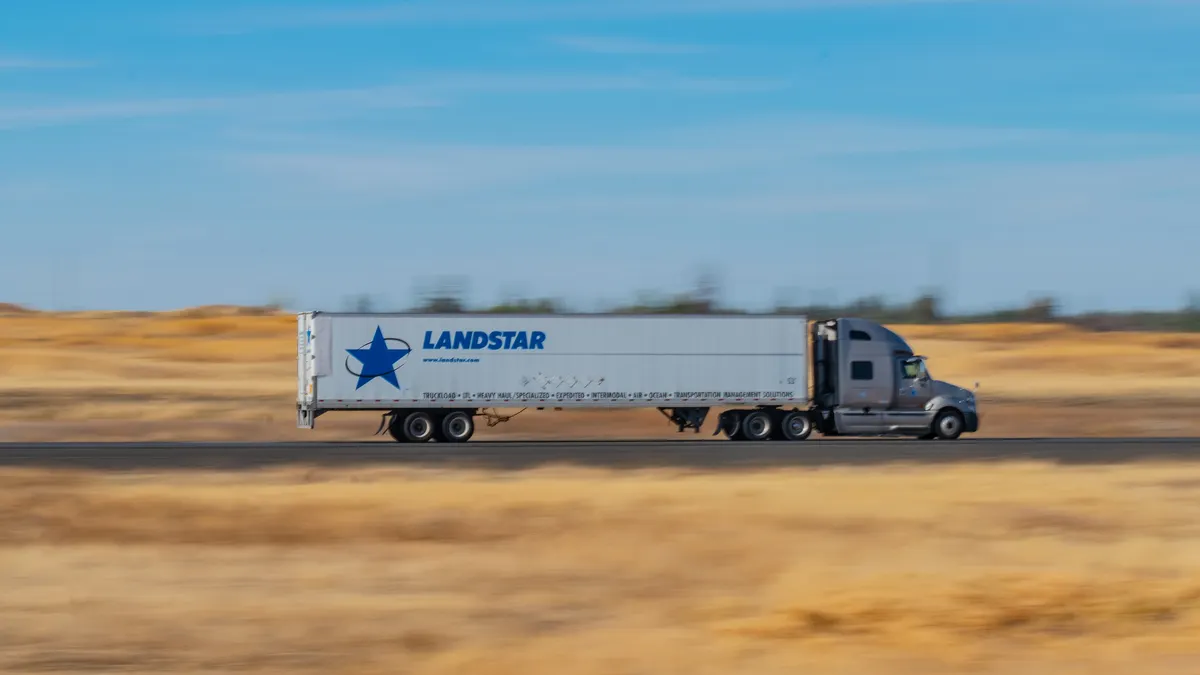Hurricane Helene killed more than 100 people, left millions without power and washed out major highways needed to deliver aid when it pummeled the Southeast last week, authorities said.
All roads in western North Carolina remain closed, according to the state transportation department. Interstate 40, a critical east-west trucking route, is impassable at multiple points, and Interstate 26 is closed at the Tennessee line.
High winds knocked down trees and power lines. Floodwaters swept away homes, tractor-trailers and large chunks of highways. Social media videos showed truck cabs filling with water and fallen trees on top of trucks, among other images of a storm that already ranks among the nation’s deadliest on record.
Bottled water shipments to affected areas have been a priority, because the storm took out power to water treatment facilities in the region, North Carolina Trucking Association President and CEO Ben Greenberg told Trucking Dive Tuesday.
“That's going to be weeks, if not longer, for there to be an appropriate recovery to water supply,” Greenberg said. “So we're trying to get as much water into western North Carolina as we can.”
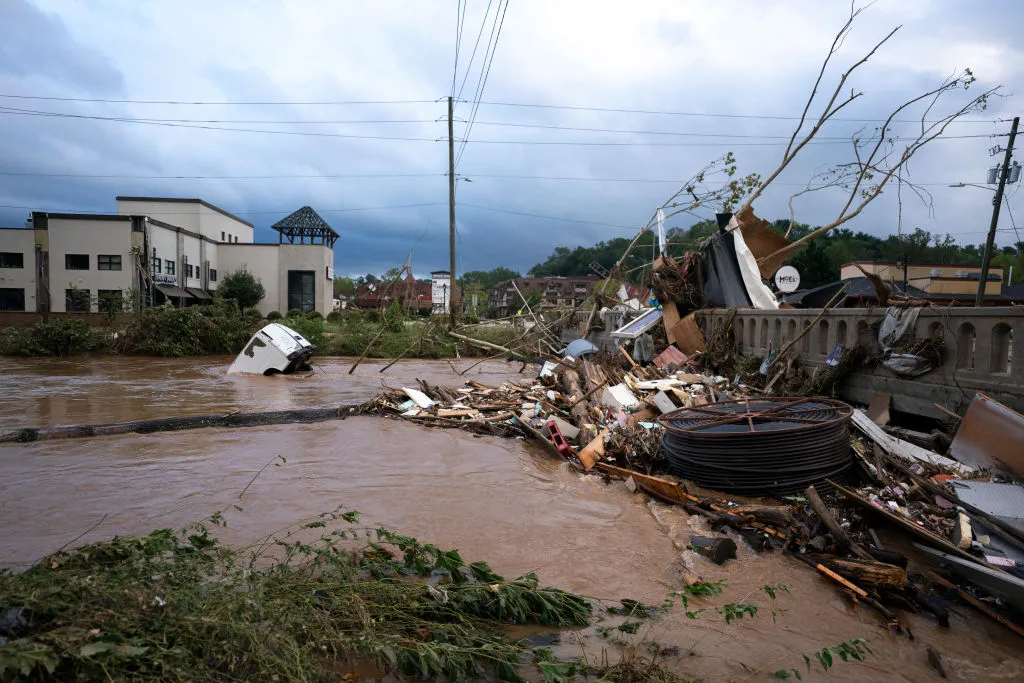
Beyond the loss of life and property, the destruction is another blow to carriers that have already suffered a prolonged freight recession — and are bracing for more disruption from an International Longshoremen’s Association strike that began at East Coast and Gulf Coast ports Tuesday.
“It's a significant situation on two fronts for an otherwise vulnerable supply chain,” Greenberg said. “You’ve got a major access point to Tennessee shut down for the foreseeable future.”
The hurricane and dockworker strike could combine to shutter some carriers in the region after a two-year freight recession, Greenberg said.
“These are fleets that have been suffering for too long now,” he said. “We will see companies, unfortunately, likely go out of business.”
The storm isn’t expected to contribute to any lasting improvement to freight rates. FTR Transportation Intelligence is not anticipating a notable increase in demand or rates, beyond some localized increases in and around the Southeast, CEO Jonathan Starks wrote on LinkedIn.
“There does not seem to be widespread infrastructure damage or extreme limitations on getting loads into or out of the hurricane zone,” Starks wrote.
‘It’s really been a mess’
Helene’s damage across the Carolinas, Florida and Georgia required a coordinated response by neighboring states and their counterpart trucking associations.
The storm wreaked havoc across Augusta and Savannah but left metropolitan Atlanta largely unscathed, said Georgia Motor Trucking Association President and CEO Ed Crowell in an interview.
“The coastal area was slammed,” Crowell said. “We've got members whose homes were damaged [and] members whose operations were damaged.”
The Georgia Motor Trucking Association has been assisting members however it can, he said. The group is gathering relief aid materials and staging them at six sites for distribution.
“It's really been a mess,” Crowell said. “We've got members who have trucks idle and can't operate. So we've been helping them, if nothing else, get unemployment set up for their truck drivers and their staff.”
The ILA strike will exacerbate the challenges faced by the region after the hurricane, he said.
“This is exactly the wrong way to recover from a major storm,” Crowell said.
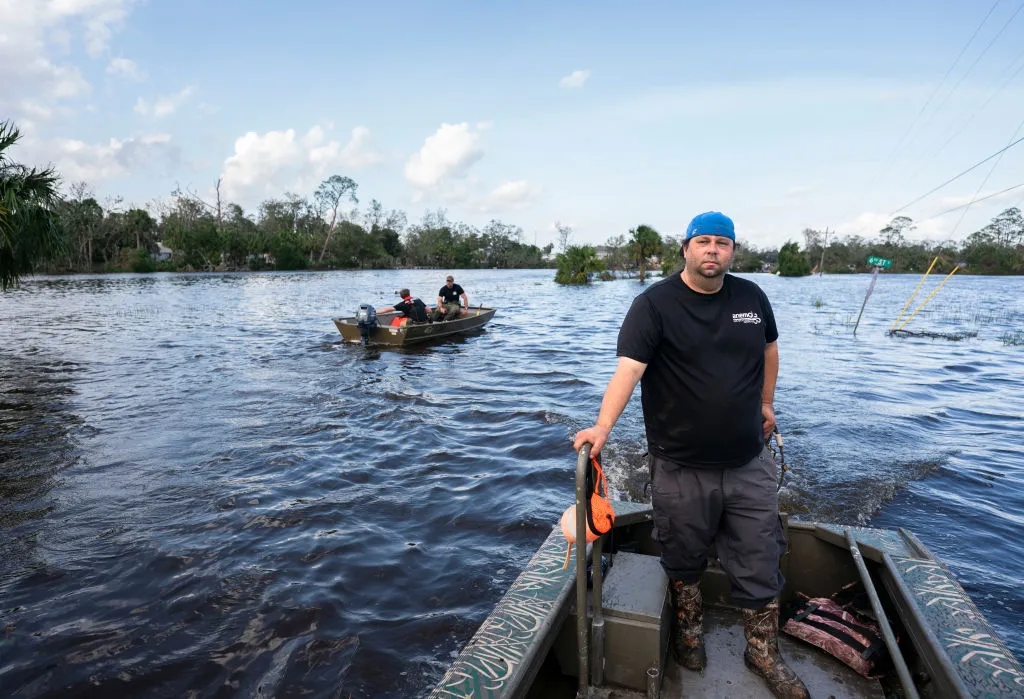
‘We know what works’
In Florida, the storm hit the Big Bend area, where the three most recent major hurricanes have landed, and shut down the jet fuel pipeline to Orlando International Airport from Port Tampa Bay, Florida Trucking Association President and CEO Alix Miller said in an interview.
St. Petersburg had such widespread flooding and power outages that “houses were on fire, but emergency personnel couldn't get to the houses,” Miller said.
“I guess, silver lining is, it's a state filled with boats,” she said.
Florida officials and the state’s trucking association are putting their experience dealing with hurricanes to use as they respond to the disaster alongside their counterparts across the region, Miller said.
“We know what works, what's most efficient, who to go to for any given problem,” she said.



